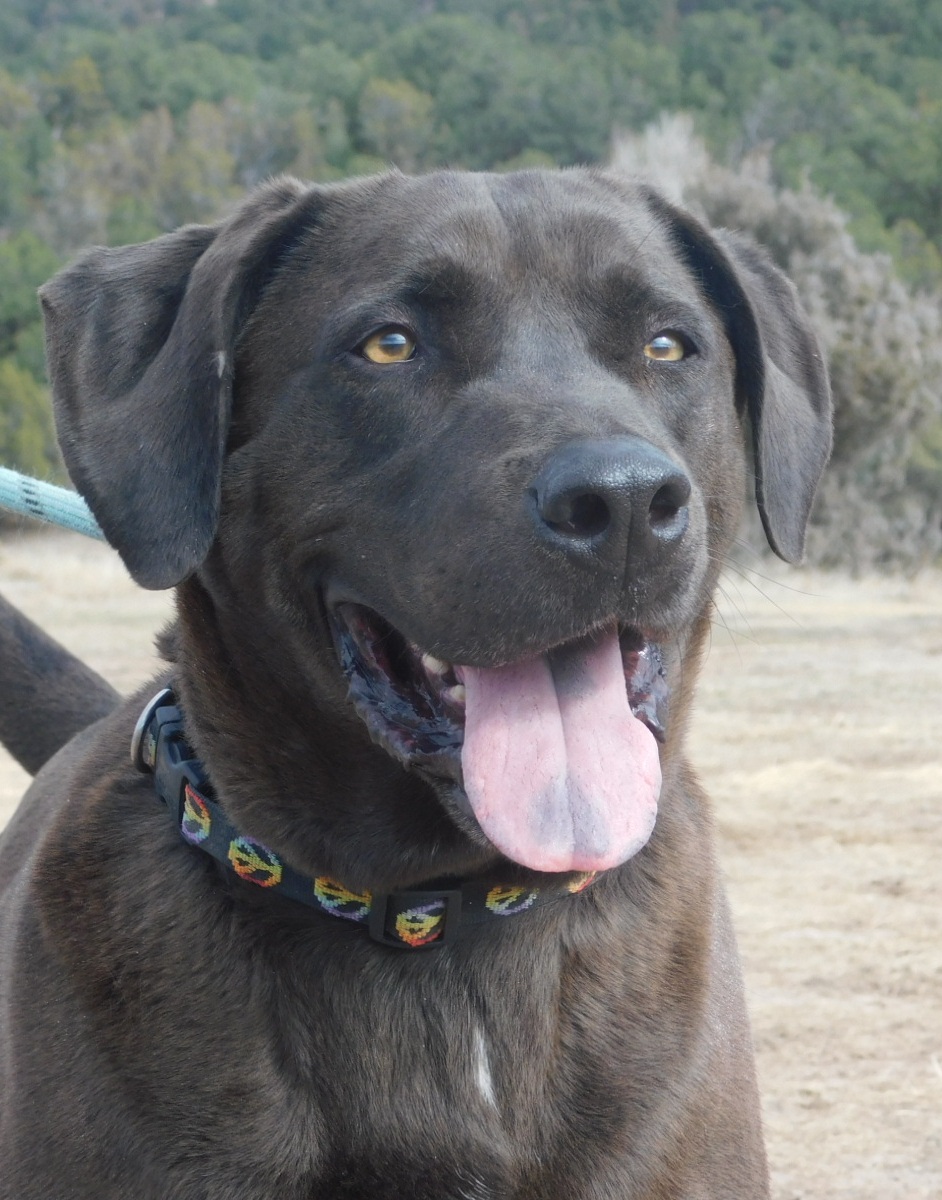
23 Nov Second Chance: Breaking News on Rabies Vaccine
Sampson here with some breaking scientific news: The rabies vaccine, found to be extremely effective at preventing this fatal disease in dogs, is now showing significant positive impacts on overall canine health and a strong association with a decrease in death from all causes. So, along with the reduced prevalence of rabies in the U.S., this vaccination brings other positive benefits to your pets.

Sampson. [Photo courtesy of Second Chance]
Dr. Darryn Knobel, Associate Professor of Epidemiology and Population Health at Ross University School of Veterinary Medicine, recently published his research results in the journal Vaccine.
The study showed that rabies vaccinations reduced the risk of death from any cause by 56 percent (!!!) in dogs up to 3 months of age. While all dogs experienced decreased mortality, the percentage decrease was highest in young dogs, with the effect diminishing over time.
Knobel’s study area incorporated an impoverished region of South Africa, where infectious diseases, including rabies, are an ever-present threat to both humans and dogs. The research team concluded that the decrease in mortality couldn’t be explained by a reduction in deaths due to rabies alone.
“This led us to propose that rabies vaccine may have a non-specific protective effect in dogs, perhaps through boosting the immune system to provide enhanced defense against other unrelated diseases,” Knobel stated. “A similar phenomenon has been observed in children, although it remains to be substantiated through more definitive trials.”
Understanding the mechanisms responsible for the enhanced immunity could have broad implications not only for veterinary medicine but also for human medicine. Dr. Knobel hopes to continue his studies in collaboration with veterinary immunologists and infectious disease specialists.
Although the incidence of Americans contracting rabies is extremely rare (1-3 cases reported annually and typically contracted outside of the U.S. and its territories — while dogs with rabies were reported 420 times and cats 272 in 2015) rabies remains a global health threat with tens of thousands of human deaths every year, mostly in Asia and Africa. Globally, dogs are the main source of human rabies deaths (in the U.S. it is bats), so rabies control programs are essential to both canine and human health.
While great progress has been made in rabies prevention and treatment since 1983, the World Health Organization continues to include rabies on its neglected tropical disease roadmap. As a zoonotic disease (one that spreads from animals to people), rabies requires close cross-sectional coordination at the national regional and global levels. Raising awareness about rabies is critical to successful disease management programs.
In conclusion, I would recommend you vaccinate your pets against rabies.
By the way, I am a very handsome chocolate lab looking for a new family. I am 3 ½ years young and love spending time with loving affectionate people and dogs, particularly playful ones like me. I am responding great in the Basic Obedience training here at Second Chance and ready to teach you some new tricks – come meet me today!
For cat lovers, meanwhile, meet Dezi, the handsome grey tabby kitten who is the Second Chance cat of the week. He is only 9 months old and like me, extremely affectionate toward people and a lover of attention. Dezi has been working on socialization with other cats and is doing great. He enjoys exploring the cat house and checking out what the other cats are doing.

Dezi is Second Chance’s cat of the week. [Photo courtesy of Second Chance]

Ted Hoff with Cabella & Wilbur
By the by, there is no better place to park your pup or get your pup (or adult dog) trained than Cottonwood whenever you head out of town (for locals) or are heading to town and staying somewhere that does not allow pets. Consider joining Ted’s Very Important Dog (VID) Club for added benies. (Details on Ted’s website.)
Second Chance Humane Society Animal Resource Center and Thrift Shop are both located in Ridgway, but service San Miguel, Ouray & Montrose Counties. Call the SCHS Helpline at 626-2273 to report a lost pet, learn about adopting a homeless pet, or about the SCHS Spay/Neuter, Volunteer, Feral Cat, or other Programs. View the shelter pets and services online: www.adoptmountainpets.org
Vetting the Vet: Dr. Michelle Dally, DVM, J.D. is Medical Director of Second Chance Humane Society. She also has a private practice, Dally Veterinary Medicine, 333 S. Elizabeth Street, Ridgway, Colorado. Her service area is San Miguel Mesas, Placerville, Ridgway, Ouray, and Montrose. For more on Dr. Dally, go here.

Michelle & Wallowby


Sorry, the comment form is closed at this time.